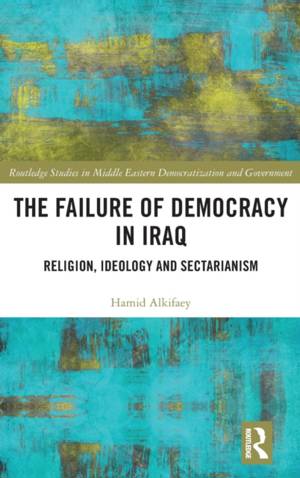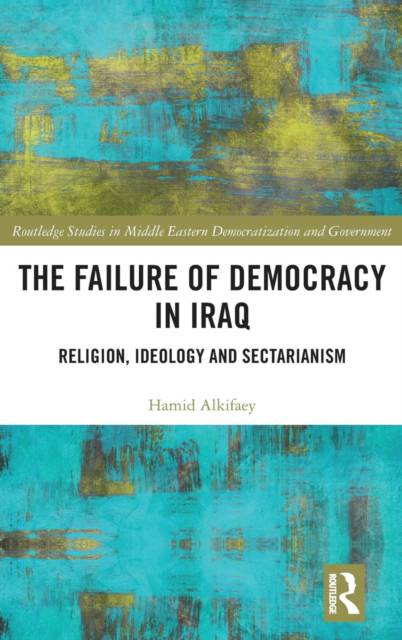
- Retrait gratuit dans votre magasin Club
- 7.000.000 titres dans notre catalogue
- Payer en toute sécurité
- Toujours un magasin près de chez vous
- Retrait gratuit dans votre magasin Club
- 7.000.000 titres dans notre catalogue
- Payer en toute sécurité
- Toujours un magasin près de chez vous
Description
The Failure of Democracy in Iraq studies democratization in post-2003 Iraq, which has so far failed, due mainly to cultural and religious reasons. There are other factors, such as the legacy of the dictatorial regime, exclusionary policies, the problem of stateness, interference by regional powers, the rentier economy and sectarianism, that have impeded democracy and contributed to its failure, but the employment of religion in politics was the most to blame.
The establishment of stable democratic institutions continues to elude Iraq, 15 years after toppling the dictatorship. The post-2003 Iraq could not completely eradicate the long historical tradition of despotic governance due to deep-seated religious beliefs and tribal values, along with widening societal ethno-sectarian rifts which precluded the negotiation of firm and stable elite settlements and pacts across communal lines. The book examines how the fear in neighbouring countries of a region-wide domino effect of the Iraq democratization process caused them to adopt interventionist policies towards Iraq that helped to stunt the development of democracy. The lack of commitment by the initiator of the democratic process, the United States, undermined the prospects of democratic consolidation. This is compounded by serious mistakes such as de-Ba'athification and the disbanding of the Iraqi army and security apparatuses which caused a security vacuum the US forces were not able to fill.
The Failure of Democracy in Iraq
is a key resource for all students and academics interested in democracy, Islam and Middle East Studies.Spécifications
Parties prenantes
- Auteur(s) :
- Editeur:
Contenu
- Nombre de pages :
- 228
- Langue:
- Anglais
- Collection :
Caractéristiques
- EAN:
- 9781138337787
- Date de parution :
- 15-01-19
- Format:
- Livre relié
- Format numérique:
- Genaaid
- Dimensions :
- 156 mm x 234 mm
- Poids :
- 512 g







